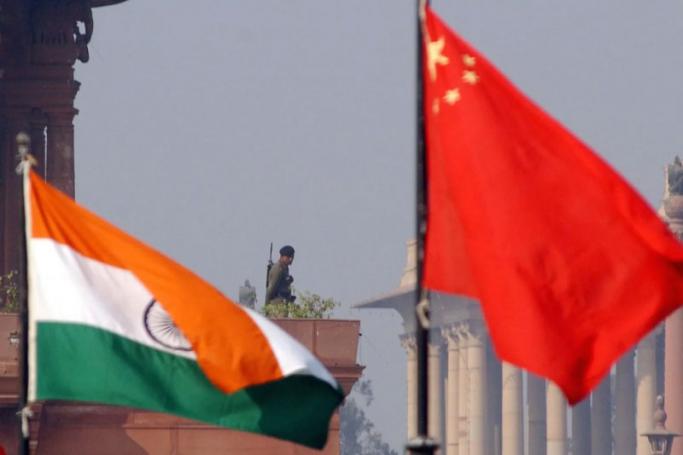Recently, the China International Development Cooperation Agency (CIDCA) and the People’s Government of Yunnan province hosted the China-Indian Ocean Region Forum on Development Cooperation in the Yunnan capital Kunming, on 21 November 2022. The forum’s theme was ‘Shared Development: Theory and Practice from the Perspective of the Blue Economy’.[1] It was chaired by Luo Zhaohui, the Chairman of CIDCA who was also the former Chinese Ambassador to India between 2016 to 2019.
According to the Chinese government, representatives of 17 states and three international organisations attended the meeting virtually. The countries included Indonesia, Pakistan, Myanmar, Sri Lanka, Bangladesh, Nepal, Afghanistan, Iran, Oman, South Africa, Kenya, Mozambique, Tanzania, Seychelles, Madagascar, Mauritius, and Djibouti. Australia and the Maldives, which had received invitations from China preferred not to attend the meeting, though China claimed that representatives of both countries attended the meeting. Subsequently, however these countries issued press statements clarifying that their representation at the meeting was not official.
Needless to mention, India was not part of the meeting, though Beijing claimed that New Delhi was invited too. Addressing the forum, Luo underlined that “the Indian Ocean connects Asia, Africa and Oceania and serves as an important window and route that connects China and countries in the region to the rest of the world.” He added that China will strengthen cooperation with countries in the Indian Ocean region to grow the blue economy, and advance the implementation of the Global Development Initiative in the region.
Against the backdrop of recent setbacks that China has received in the region including in Sri Lanka and Pakistan, this China-Indian Ocean Region Forum is a clear attempt by Beijing to reclaim some of the lost ground. Given the history of Chinese investments in the region, this meeting can be perceived as another expansionist attempt by China to amplify its presence in the Indian Ocean Region (IOR) by investing in ports and infrastructure in the IOR countries, especially in South Asia.
The CIDCA, which is an official Chinese agency, it seems has been established with a view to counter the strong influence that India holds in the Indian Ocean Rim Association (IORA) – an organisation with 23 member states and is well entrenched in the region. China is expected to roll out more such initiatives in the future. Even though China is far from having the full capacity to steer moves against perceived adversaries in a conflict-like situation in IOR, its relentless efforts to enhance its operational capabilities have grabbed the attention of the key players in the region. This attention is inevitable as China is expecting to yield huge economic and strategic advantage through these growing military operational capabilities.[6]
CIDCA can also be seen as trying to compete with the United States Aid with a special focus on littoral states. Since countries like Sri Lanka, Myanmar, Bangladesh, and Pakistan are already suffering from the Chinese debt trap courtesy of the Belt and Road Initiative, it is possible that these countries may be looking at CIDCA hoping for further loans. The scope of this initiative is not just economic as media reports suggest that the People’s Liberation Army Navy is already mapping the IOR using its Yuan Wang series of space-tracking ships for a strategic survey. Sri Lanka is believed to be providing the essential logistical support for the growing Chinese naval footprint in the region through Hambantota port, leased to Beijing for 99 years. In addition, the PLA Navy already has a full-pledged naval base in Djibouti.
China is keen to retain its influence as the growing influence of Quad especially in terms of infrastructure financing seems to have unsettled Beijing. Therefore, it is keen to raise alternative platforms or groupings which will help it to counter the United States and its partners in the region. China has repeatedly stressed that the Indian Ocean is not India’s ocean. It is clearly aiming to reap the vast strategic benefits that the IOR has to offer. The Chinese Communist Party is keen to enhance China’s military capabilities with a view to undertaking a series of military missions in the IOR.
Considering all the developments in recent months, it is quite clear that Beijing is determined to expand its economic, military and political influence in the region. However, it is not as easy as it looks. Its assertive attitude has driven away and in fact antagonised many of its allies and neighbours. These countries are finding value and are benefitting from the evolving cooperation of the Quad and also the existing institutions like IORA. In these circumstances, dominating the region will not be an easy task for China. Moreover, the US through a host of initiatives like the Indo-Pacific Economic Framework is seeking to closely integrate itself in the region. So, clearly China will need to rethink its approach of not just luring its neighbours and smaller countries in the region but also shed its hostile outlook when it comes to other actors in the region.
This commentary was written for Mizzima by an independent analyst who wishes to remain anonymous

